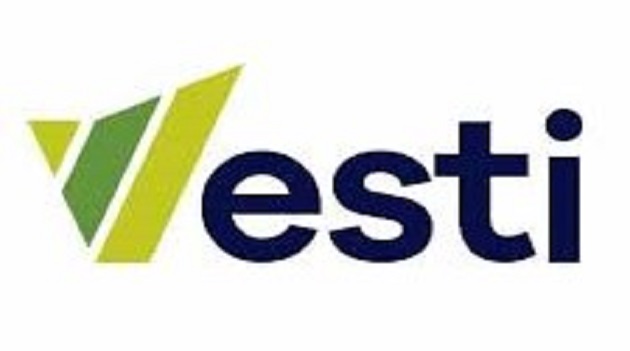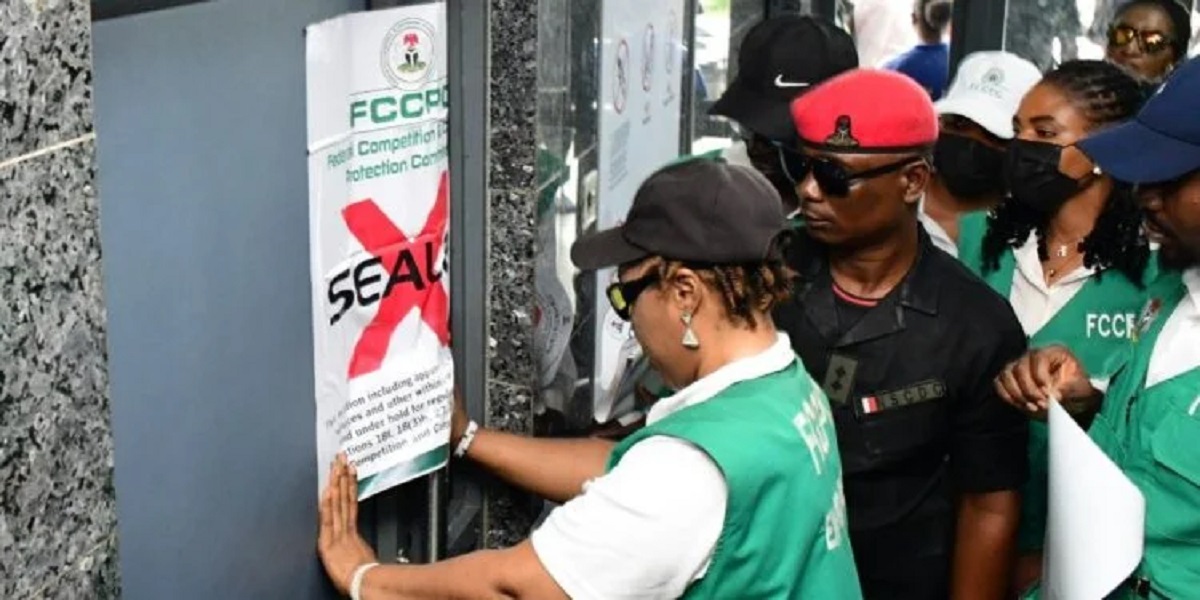News
Report Shows 1 in 2 Nigerians Want to Move Abroad—Why It’s More Than Just a Statistic

With nearly half of Nigeria’s population expressing interest in relocating abroad, as Gallup recent data indicates, the desire to seek greener pastures has become more prominent. When surveyed, 1 in 2 Nigerians say they would want to move abroad for work, school or to expand their business.

This trend, fueled by economic and political instability, suggests a rising number of skilled Nigerians could enrich foreign workforces and economies. While it offers opportunities for individual growth and development, it also raises concerns about a potential brain drain.
The desire to seek better opportunities abroad is understandable. Nigeria’s talented youth, often stifled by systemic challenges, are eager to contribute to the global workforce. It’s not just Nigeria, Liberia for instance according to the report by Gallup has more than 70% of its surveyed population showing interest in moving abroad.
“More than a third of Africans want to move permanently to live somewhere else, a new high, according to a 2023 survey by Gallup. In 2012, 29% wanted to migrate; last year the number was 37%”, says Alexandra Onukwue who writes for Semafor.
However, this exodus can have detrimental effects on the nation’s economic growth and development. As skilled professionals leave, the country loses valuable human capital that could drive innovation and create jobs.
To address this issue, it’s crucial to create an environment that fosters talent and innovation within Nigeria. This involves implementing policies that promote economic growth, reduce corruption, and improve the quality of life. Additionally, investing in education and skills development can equip young Nigerians with the tools they need to succeed.
This is why Vesti is playing an important role as a “Software Engineering Location of Choice” and its dedication to nurturing and developing top talent.
The company has ambitious plans to create over 600 engineering jobs in Lagos over the next two years and 1,500 new engineering jobs in the state by 2027. Although the Dallas-headquartered Vesti serves users from over 15 countries through its mobile apps and website, it has notable presence in the UK, Ghana, Zambia, Nigeria and recently expanded to Canada.

Olusola Amusan, CEO of Vesti, highlights the significance of this migration. “Nigeria is full of talented individuals eager to make a difference, and they are looking globally for opportunities.
Vesti is committed to making that transition as smooth as possible by equipping them with the right resources to succeed abroad,” Amusan said. Amusan emphasizes the importance of a balanced approach to migration. “We can’t stop migration, but we can make it seamless, while building room for creative ways for immigrants to send money back home and develop their home countries”, Amusan continues.
While it’s essential to support those seeking opportunities abroad, it’s equally important to create a thriving ecosystem within Nigeria. By investing in education, technology, and entrepreneurship, Nigeria can retain its talent and drive economic growth.
As global economies increasingly need skilled labor, platforms like Vesti are meeting a critical need, helping individuals navigate complex immigration processes.
However, the challenge is ensuring that this migration trend contributes positively to both Nigeria and host countries.
The UN Office on Migration warns against the risks of “brain drain” and emphasizes the need for balanced migration policies. Since the Vesti app allows people from other countries to move to Nigeria by showcasing Nigeria’s strategic advantages, the app is one the ways Amusan things we can balance the scales.
To fully harness the power of migration to create a better future for all, a concerted effort is needed from both the Nigerian government and the international community. The Nigerian government must prioritize education and skills development to equip young people with the tools they need to succeed in a globalized world.
Creating a conducive business environment, reducing corruption, and promoting transparency are essential for attracting investment and fostering innovation. By implementing these measures, Nigeria can retain its talent and encourage entrepreneurship. Retention is however becoming an old trick, countries are trying export, talent export.
The idea of talent export is to partner with multinationals in destination countries, cities, states and national governments, to export talent with the intent to bring foreign direct investment or simply remittances back to the home country. There are a couple of white papers that further explain this model.
International cooperation is crucial in addressing the complex issues surrounding migration. Countries should collaborate to establish skilled worker programs that benefit both sending and receiving nations.
Encouraging the diaspora to contribute to Nigeria’s development through investments and knowledge sharing can also have a significant impact. Additionally, it’s imperative to ensure fair labor practices and protect the rights of migrant workers.
With this trend likely to continue, countries need to recognize the value Nigerian immigrants bring. By easing entry for skilled Nigerian professionals, host countries stand to benefit from a motivated workforce ready to contribute.
At the same time, initiatives like Vesti with over 800,000 downloads in the Google Playstore, are crucial for empowering these professionals to be both successful and well-integrated abroad.
Despite how many people love Vesti, its current success is still a scratch in a market where Vesti wants to help 50m-100m people by 2028. Vesti’s apps can be downloaded in App Store and the Google Play store or via Wevesti.com
News
DBN Awards N13m in Grants to Tech Startups

Development Bank of Nigeria (DBN) has awarded a total of N13 million in grants to three standout tech startups at the 2025 Techpreneur Summit held in Lagos, reinforcing its commitment to innovation and inclusive growth among Nigeria’s micro, small, and medium enterprises (MSMEs).

The winners include: BuyScrap, a digital marketplace for recyclable materials – N6 million; Qiqi Farms, which connects local farmers to hospitality and export markets – N4 million; Eco-Cyclers, a youth-led recycling initiative based in Enugu – N3 million
Alongside the grant awards, DBN also launched a new digital data asset, a first-of-its-kind platform aimed at enabling data-driven decisions within the MSME ecosystem.
The platform offers deep insights into business trends, sector-specific challenges, and growth opportunities—supporting smarter policymaking and targeted investments.
In his keynote address in Lagos, Tony Okpanachi, managing director/ CEO, DBN, described the event’s theme, “CTRL + SHIFT: Tech Empowered Movement for Naija,” as a strategic call to reimagine enterprise development in Nigeria.
“This isn’t just a keyboard shortcut,” he said. “It’s a mindset reset—powered by technology—to build a more inclusive, innovative, and resilient business landscape. From financing to innovation, DBN remains committed to enabling MSMEs to thrive.”
Okpanachi emphasized that the Summit aligns with DBN’s AMPLIFI Strategy, which integrates digital transformation, sustainability, and scalability into its core programs.
He highlighted initiatives such as the Digital Shift Workshops and the Eco-Innovation Challenge as key steps toward embedding innovation in Nigeria’s MSME sector.
Encouraging young innovators, he added: “The future belongs to those bold enough to imagine and build it. DBN is proud to support the ideas that will shape tomorrow.”
A major highlight was the unveiling of the DBN Data Asset—a digital platform designed to provide real-time, evidence-based insights into Nigeria’s MSME landscape.
The platform combines DBN’s proprietary data with external sources like the National Bureau of Statistics (NBS) to offer a comprehensive view of MSME performance by region and sector.
Jeremy Dan Okayi, DBN’s Head of Strategy, Policy & Innovation, described the platform as: “A reservoir of insight, potential, and direction—built on two years of collaboration and shared vision. This tool will support informed decision-making across the public and private sectors.”
News
FCCPC Shuts France, Belgium, and Italy Visa Centres in Abuja Over Alleged Consumer Rights Violations

In a bold enforcement action, the Federal Competition and Consumer Protection Commission (FCCPC), supported by the Nigeria Police Force and the Nigeria Security and Civil Defence Corps (NSCDC), has sealed off the visa application centres of France, Belgium, and Italy in Abuja over alleged consumer protection breaches and obstruction of regulatory investigations.

The affected centres—located at Mukhtar El-Yakub House in the Central Business District and operated by TLS Contact, a Teleperformance Company—were shut down following reports that they refused to accept formal correspondence from the FCCPC regarding a consumer complaint. The Commission cited further infractions, including obstruction of investigation and alleged assault of its officers during lawful duties.
Speaking to journalists at the scene, Mrs. Boladale Adeyinka, Director of Surveillance and Investigations at the FCCPC, explained: “This is an enforcement operation against TLS. On March 25, 2025, we served them a letter to address a consumer complaint, which they refused to accept. Instead, TLS officers assaulted our team, and in a subsequent visit on June 17, they also allegedly assaulted uniformed police officers.”
Citing Section 33 of the Federal Competition and Consumer Protection Act (FCCPA), Mrs. Adeyinka emphasized that failure to comply with Commission directives constitutes a criminal offense, punishable by imprisonment, fines of up to ₦20 million, or both.
TLS has been ordered to appear before the Commission on June 20, 2025, to provide testimony, submit evidence, and make formal depositions. The company may be held liable for any financial losses suffered by applicants due to the disruption of visa services.
Despite multiple requests for comment, management at TLS Contact declined to respond as of press time.
News
How and Why N210 Trillion is Missing in NNPCL – CFO

Adedapo Segun, chief financial officer (CFO), Nigerian National Petroleum Company Limited (NNPC), has explained why there is a missing sum of N210 trillion in the company’s audited financial statement spanning from 2017 to 2023.

According to Segun, the missing funds are cash calls requested by joint venture (JV) partners and settlement to the JVs.
He spokeat a session of the Senate Committee on Public Accounts chaired by Aliyu Wadada.
Segun was responding to an alarm raised by the committee over missing N210 trillion in NNPCL’s audited financial statement.
Recall that Wadada issued a one-week ultimatum to NNPCL to account for the missing N210 trillion.
Reacting, Segun said, “The N103 trillion and N107 trillion are made up of joint venture cash calls that have been requested by the JV operators and JV cash call payments made by NNPCL, which are yet to be reconciled because governance procedures were not done at that time.
“That is why you see the description reflecting those two items would be washed out because they are two sides of the same transaction, which is the cash calls by JV partners and the settlement by NNPCL.”
However, Habu Sadeik, a financial analyst, in a post on X on Thursday, said Segun’s response was unsatisfactory.
Saidik faulted NNPCL’s response about the fund discrepancies, noting that something is not right with the audited financial statement.
“Forget about the senators’ lack of knowledge.
“The CFO’s response is not satisfactory. Are you saying that cash calls worth hundreds of trillions are just appearing on your FS only in 2024 without 31 disclosure?
“If it’s a cash call, why hasn’t the disclosure said so?
“Which cash call is over 100 trillion?
“Something is definitely not right, and I hope they retrospectively correct that FS.
“Someone somewhere did a chef’s work,” he wrote on X.

 General News3 days ago
General News3 days agoNASRDA, Galaxy Space Firm Sign MoU on Satellite Connectivity

 Telecom3 days ago
Telecom3 days agoOver 1m Nigerians Reached through MTN Staff’s Digital and Community Outreach

 Telecom3 days ago
Telecom3 days agoMafab Gets 0724 Number Series, Launches Mcom 5G Brand

 News3 days ago
News3 days agoDBN Awards N13m in Grants to Tech Startups

 Telecom3 days ago
Telecom3 days agoNCC to Name, Shame Telecom Infrastructure Vandals

 News3 days ago
News3 days agoFCCPC Shuts France, Belgium, and Italy Visa Centres in Abuja Over Alleged Consumer Rights Violations

 Telecom3 days ago
Telecom3 days agoWSIS Review: Nigerian ICT Leaders Urged to Shape Global Digital Future

 E-Financial3 days ago
E-Financial3 days agoBank Customers Petition CBN over Illegal Deductions, Demand Action


















